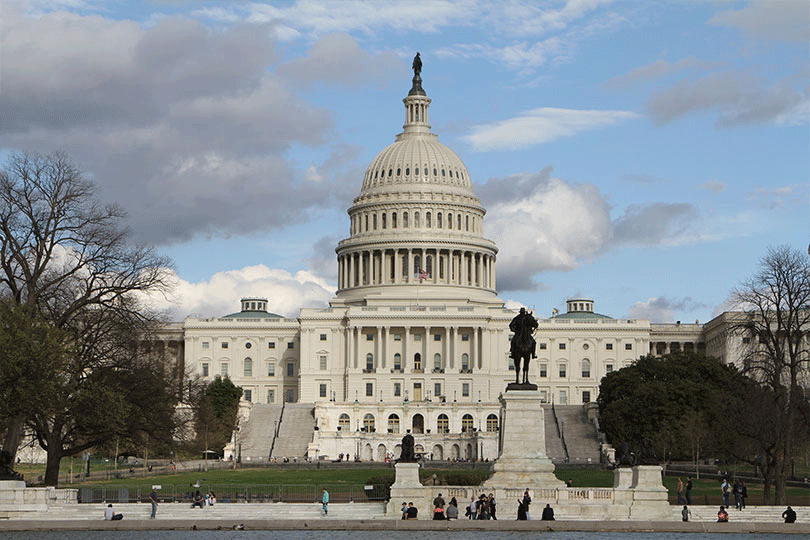By Jessica Domel
Multimedia Reporter
The biggest changes to the American tax code in more than three decades were signed into law at the White House Friday, Dec. 22.
President Donald Trump tweeted Friday morning his intent to sign the “biggest ever tax cut and reform bill,” along with a $4 billion missile defense bill.
“Our big and very popular Tax Cut and Reform Bill has taken on an unexpected new source of ‘love’–that is big companies and corporations showering their workers with bonuses. This is a phenomenon that nobody even thought of, and now it is the rage. Merry Christmas!” the President tweeted.
The House passed the Tax Cuts and Jobs Act Monday, Dec. 18. The Senate followed with its 51-48 party line vote of approval Tuesday, Dec. 19. But due to provisions in the bill that violate the Byrd Rule, the Senate-passed bill had to be returned to the House for another vote.
The Byrd Rule is designed to keep the Senate from considering “extraneous” matters included in conference reports.
The House passed the bill a second time in a 224-201 vote Wednesday, sending it to the president for his signature Friday morning.
”This is an incredibly exciting day for the American people, who have waited years—even decades—for a simpler, fairer tax code that will grow our economy and allow them to keep more of their hard-earned money,” House Ways and Means Committee Chair Kevin Brady of Texas said. “For the first time in three decades, Americans will finally have a tax code that delivers more jobs, fairer taxes and bigger paychecks to people and families across our nation. That’s great news for people in my home state of Texas and all Americans.”
House Agriculture Committee Chairman Mike Conaway of Texas praised passage of the historic legislation.
“As chairman of the House Agriculture Committee, I’m pleased that Chairman Brady and his team have produced a bill that acknowledges the unique tax challenges faced by those in agriculture. From lower marginal rates to the treatment of pass-through income to improved small business expensing, this bill delivers for farmers, ranchers and all rural America,” Conaway said.
Since 94 percent of farmers pay taxes as individuals, and those taxes are set to be lowered, American Farm Bureau Federation President Zippy Duvall applauded the bill. He said it maintains all of the important deductions and credits farmers rely on.
“Starting next year, farmers and ranchers will also be able to take a 20 percent deduction off their business income,” Duvall said. “That’s new, and it will reduce the taxes farmers owe. The bill also doubles the estate tax exemption to $11 million per person, which will provide relief to the vast majority of farmers and ranchers. We look forward to President Trump signing this bill. Most of the provisions in this tax bill are temporary, lasting for only seven years, so Farm Bureau will now focus our work on making those important tax deductions, lower rates and the estate tax exemption permanent.”
The legislation increases the standard deduction from $6,500 to $12,000 for individuals and from $13,000 to $24,000 for couples.
It also calls for seven tax brackets with the top tax bracket reduced from 39.6 percent to 37 percent.
For unmarried taxpayers and couples filing separately, the brackets are as follows:
- 10 percent up to $9,525
- 12 percent up to $38,700
- 22 percent up to $82,500
- 24 percent up to $157,500
- 32 percent up to $200,000
- 35 percent up to $500,000
- 37 percent over $500,000
For married couples filing jointly, the brackets are as follows:
- 10 percent up to $19,050
- 12 percent up to $77,400
- 22 percent up to $165,000
- 24 percent up to $315,000
- 32 percent up to $400,000
- 35 percent up to $600,000
- 37 percent over $600,000
The brackets are set to expire in 2025.
The corporate tax rate is reduced in the new tax code from 35 percent to 21 percent starting in 2018. It also creates a 20 percent income tax deduction for pass-through businesses.
Immediate expensing for new business equipment is also allowed under the new code.
The bill also ends the fines some Americans faced last year for not complying with the

